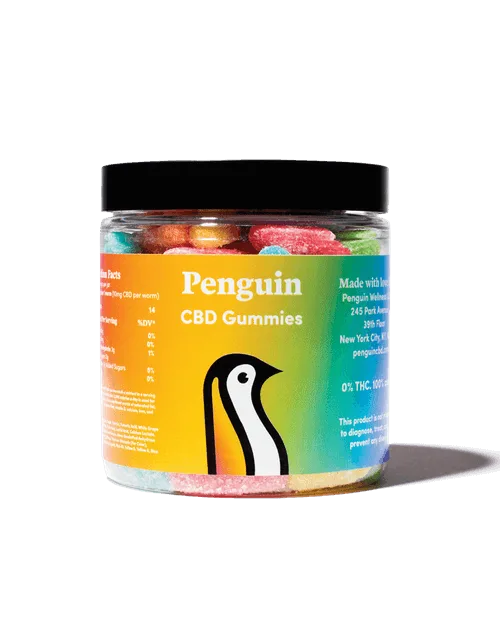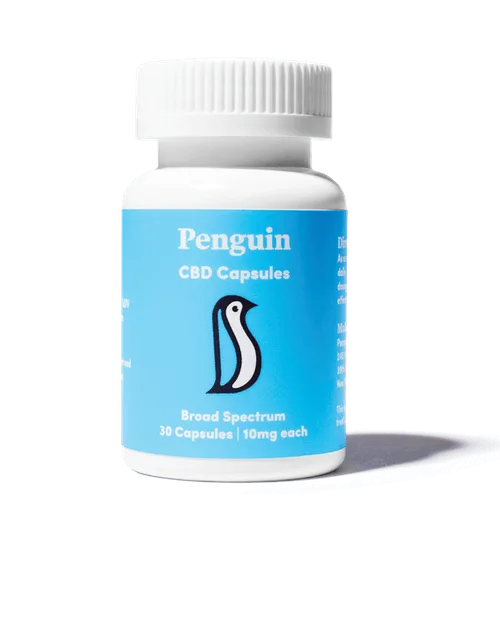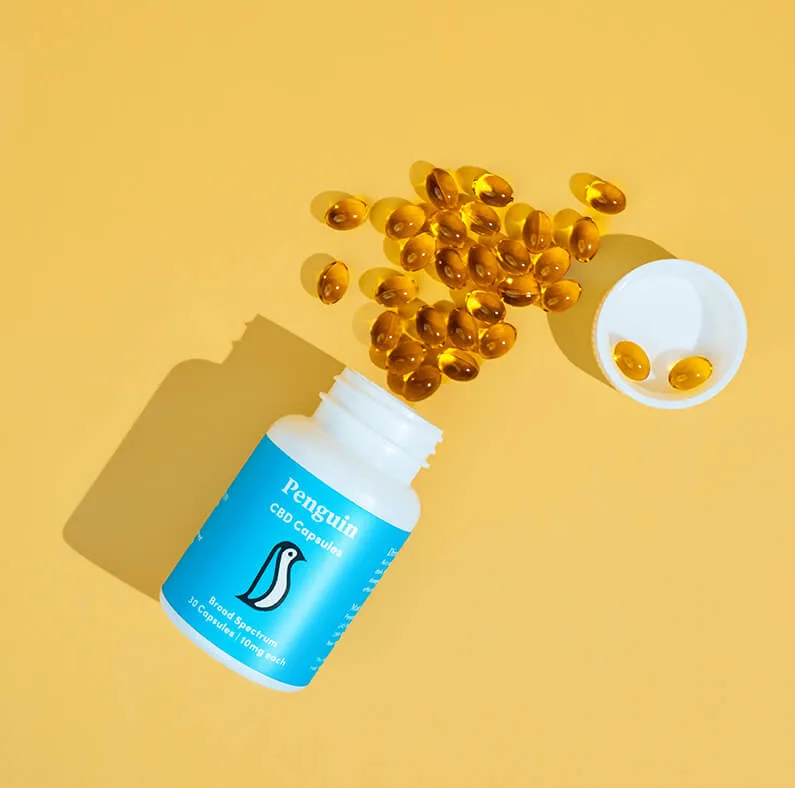How Much Does CBD Oil Cost?
 By Penguin CBD
By Penguin CBDLike most essential oils, CBD oil is extracted from plants—specifically, the cannabis plant. Although present in marijuana, it is most commonly derived from agricultural hemp and, in its pure form, offers many potential benefits. Because CBD oil rarely produces negative side effects and is not psychoactive like THC, its more notorious counterpart, its demand is on the increase worldwide.
CBD is sought after because of its application to wellness, mood elevation and even its energy-boosting properties without causing harm to the consumer. It’s also getting great PR: It is plant-based and grown in the USA.
Due to high demand and the recent legalization of the hemp used in producing it, a lot of brands and merchants have emerged. That has driven competition in all facets of the marketplace and has caused discrepancies in cost across products and brands.
Whether you are a regular user or a newcomer to CBD oil, you should know if you are paying too much for the product. Let’s take a look at the factors that go into pricing CBD.
How Much Does CBD Oil Cost at Its Lowest Measurement?
For you to know how much CBD you are getting for your money, you should have a basic understanding of how to determine CBD oil costs in a distinct, measurable way.
Across the industry, the lowest price you’ll find for CBD oil per mg is $0.05. Higher-priced oils will cost $0.09 to $0.17 per milligram on average, and some of the premium oils can cost as high as $0.20 per milligram.
So, depending on the size of the bottle you purchase and from which brand, CBD oils can cost as low as $30 or more than $200 per bottle.
Below is a simple mathematical equation you can use to determine CBD prices per milligram:
Total CBD Oil Price / Total Milligrams of CBD = Cost per Milligram
You can always make use of this equation to compare products and decide whether the price is competitive. Of course, there is more to consider than just the price alone. As the saying goes, you get what you pay for.
Why Do I Have to Pay More for Some CBD Oils?
Since a lot of companies now produce CBD oil, getting the cheapest available product might not be the optimal choice, as it may be substandard compared to other products and brands. A high-quality CBD product can improve your daily life remarkably, even if it’s going to be more money out of pocket. Consider it an investment in your wellness.
However, you don’t have to break the bank to get high-quality CBD oil. Consider our competitively priced CBD oil for sale, which comes in a handful of delicious flavors and consumer-based doses. You get all the benefits of premium CBD oil without the exorbitant price tag.
So, how do companies decide to price their CBD oil? The product’s final cost is affected by several factors, including:
- Type of CBD oil used
- CBD oil form and strength
- Quality of the CBD itself
The Varying Profiles of CBD Oil on the Marketplace
CBD oil is often categorized into three groups:
- CBD isolate oils
- Full-spectrum CBD oils
- Broad-spectrum CBD oils
A CBD isolate contains only one cannabinoid: CBD. Full-spectrum CBD oil contains multiple cannabinoids, terpenes, flavonoids and other useful substances that come directly from the cannabis plant, including the psychoactive compound THC. Splitting the difference, broad-spectrum oils generate the same wide profile of a full-spectrum CBD oil, though they exclude THC.
Many consumers prefer to avoid CBD isolates since they provide just one of the plethora of useful compounds present in CBD oils. Cannabinoids, when acting together, create a high level of synergy commonly referred to as the entourage effect.
In lay terms, a mixed profile of cannabis compounds, including an array of cannabinoids, offers unique benefits that consumers won’t find in a CBD isolate. However, CBD isolates offer a highly targeted option, which some consumers may find useful.
However, if you’re concerned about the THC present in the full-spectrum CBD oils, you can always stick with a broad-spectrum CBD. It’s a good way to reap the rewards of CBD without introducing THC into your system.
The presence of THC isn’t the only variable to look at when deciphering the cost of CBD oil. You should also consider product type.
How the Cost of CBD Oil Is Impacted by Product Type
CBD oil comes in different forms. The best-known products are likely CBD tinctures (which involve using a dropper to place the oil directly under your tongue). But that’s just one style in which you can buy CBD oil. It’s also available in gummies, creams and more. These varying forms of packaging will cause pricing discrepancies and will dictate how much you spend. You can always refer back to the equation above to determine the cost of CBD oil in each product.
You could also consider how much CBD oil costs per unit of efficacy. For example, if you take CBD capsules, the digestive juices in your stomach may eliminate some of the cannabinoids before they pass through the lining of your gut wall.
However, if you use a CBD tincture and consume the oil sublingually, you avoid your digestive system and your body may be able to absorb more of the hemp extract. Pinching pennies at this level may be a waste of time for people who consider the subjective effect with equal weight.
How CBD Oil Price Is Affected by Strength
Another factor that will determine how much your CBD oil costs is the strength of the CBD. If the CBD products you choose to use contain a higher potency level, they are going to cost more than products that contain fewer milligrams of CBD.
Now, before you decide to purchase from CBD brands offering a lower amount of CBD per dose in an effort to save some cash, remember that it may not cost you less in the end. If you consume a low-dose CBD product, it likely won’t be as effective as you’d like. This means you’ll have to take more of it to obtain the results you want, which translates into using up your CBD oil faster and needing to buy it more often.
Conversely, if you choose to buy from a CBD company that focuses on providing the highest-quality CBD possible with the strongest dose, you may spend a little more, but your products will also last longer. Not to mention that they will be more likely to provide the results you desire, which is the main reason you’re taking the CBD oil in the first place.
Overall Quality Is Key to CBD Oil Prices
Before you buy CBD oil, consider its quality. Low-grade CBD oil may have a handful of problems, such as:
- Not offering the same level of benefit offered by top-rated CBD oils
- Poor flavor
- Potentially containing harmful toxins
- Overly thick or thin consistency
- Unappealing color and appearance
If you buy a CBD oil that costs less but contains only CBD, has poor bioavailability, offers a low level of strength and is altogether low in quality, you’re spending your hard-earned money on a product that isn't going to work.
Focus more on product quality and you’ll be happier with the results, making your CBD oil investment pay off in the long run.
Additional Variables Exist That Impact the Cost of CBD Oil
Besides the factors above, which mostly affect consumer choice, many underlying factors affect the production of quality CBD oil.
Here are some of the manufacturing and quality-control practices that go into creating a trustworthy CBD oil that other similar products do not require.
Source of Industrial Hemp
The type of hemp used in extracting CBD oil has an effect on the quality of the end product, and the best CBD companies source their industrial hemp from domestic farms. The Farm Bill law has regulated standards for U.S. hemp cultivation, so American-grown hemp is the safest option for quality CBD oil.
As hemp continues to gain popularity in the U.S., using American crops becomes more affordable than sourcing the plants from Europe as the majority of companies did a few years ago.
But some manufacturers would choose to purchase low-quality hemp to process as CBD oil, and such hemp may be polluted with heavy metals or pesticides. These manufacturers only have profit in mind and don’t care about the possible consequence of their products. It’s advisable to look into where the CBD brand sources their hemp from.
Extraction Methods Slide the Scale on Price
There are many ways to extract CBD from the hemp plant. It can be done using steam distillation, natural solvent extraction, hydrocarbons or CO2.
CO2 extraction is considered the best method to get high concentrations of CBD without causing hazards to the environment or leaving behind toxic solvent residue. Because of that, CO2-extracted products are typically more expensive than other products.
Quality companies use CO2 technology because they can change the raw component from gas to liquid, and then leave behind premium concentrated extracts that can be suspended in high-grade MCT oil for higher bioavailability.
The cheapest industrial extraction method involves the use of hydrocarbon solvents. However, they’re potentially dangerous for both the manufacturer and the user, and are best avoided since there are clearly better (and cleaner) extraction methods.
Third-Party Testing Price Checks
Legally sold CBD oil must undergo testing in a third-party lab. This will ensure the product is safe and correctly measured. A licensed lab will make sure a product's potency is accurate, meaning you're getting the amount of CBD or other organic components you're paying for.
It’s also a way to ensure that the THC content is zero for those who want to avoid any possible intoxicating effects or drug-testing surprises.
These tests also will analyze moisture content and screen for pesticides, mold, fungus and residual solvents—chemicals that may remain after the extraction process.
Testing can get pricey. Estimated testing can cost a company between $100 and $400 per sample.
This testing cost will typically elevate the CBD oil price, so if a brand doesn’t publish Certificates of Analysis from the lab it’s a sign that the cheaper price may not be worth it.
How Much Does CBD Oil Cost?
How much your CBD oil will cost depends on:
- Where you buy it.
- Its potency.
- The oil’s quality.
- How much testing the brand employs.
- The extraction method.
- The compound profile of the product.
- The type and style of CBD oil product.
- The source of the hemp.
Some people prefer to shop for CBD locally, which is undoubtedly convenient when you live near a cannabis dispensary or pharmacy. Having to drive farther to make a purchase is another minor way in which the price of your CBD oil may change. Products found over the counter in local shops are usually more expensive than those found online, but that may not mean they are necessarily a better product.
Nevertheless, with the knowledge shared in this article, you should be able to make the right purchase. Let us know which would you prefer: a cheaper CBD oil with all of the potential issues that entails, or a product with a slightly more expensive price and vastly improved quality control. At Penguin CBD, we think the choice is clear.










